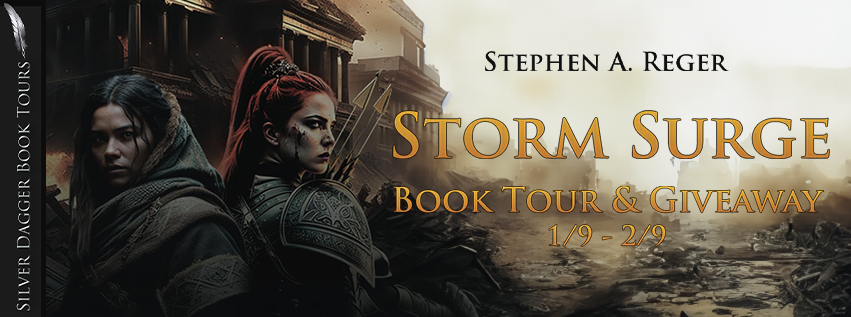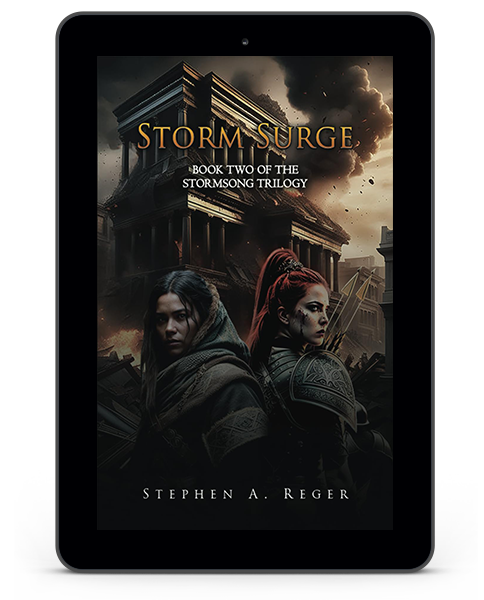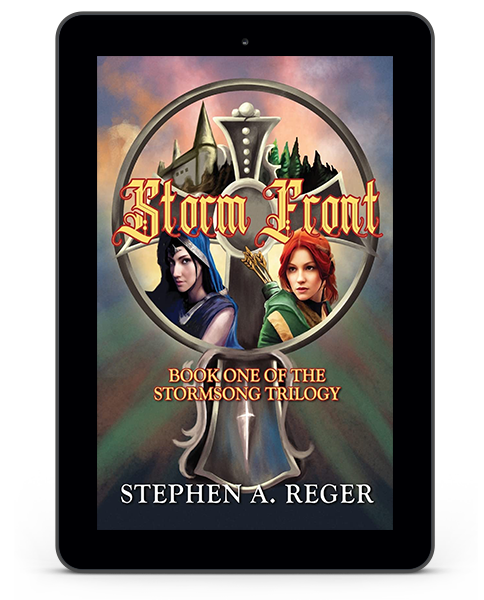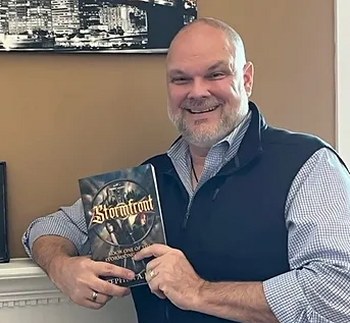 |
| Welcome to my Blog! Wander through worlds real and fictional, meet interesting people, visit exciting places and find good books to enjoy along the way! |
Series: The Great Upheaval
Trilogy
Author: Michael Dunn
Publication Date: September
25, 2023
Publisher: Historium
Press
Page Length: 301
Genre: Historical Fiction
In 1877, twenty Irish coal
miners hanged for a terrorist conspiracy that never occurred. Anywhere
But Schuylkill is the story of one who escaped, Mike Doyle, a teenager
trying to keep his family alive during the worst depression the nation has ever
faced. Banks and railroads are going under. Children are dying of hunger. The
Reading Railroad has slashed wages and hired Pinkerton spies to infiltrate the
miners’ union. And there is a sectarian war between rival gangs. But none of
this compares with the threat at home.
Mike
Doyle knew it was going to be a bad day as soon as he saw the platoon of cops,
with their bell-shaped helmets and Winchester rifles, and the miners slouching
past them with their picks dragging in the dirt. He moved closer to Da, who
continued marching forward, with his chin up, as if everything was fine, toward
the headframe and cage that would take him down into the bowels of the earth.
That damned headframe always gave Mike the shakes. It looked like a giant
wooden gallows towering over the mineshaft, only eviler, with its cables and
hoist, and the illusion of security. A gallows, at least, was honest. With a
gallows, you knew exactly when you would die.
“Can’t we go home?
Come back tomorrow?”
“Ye know we
can’t.” Da stopped and gazed down with concern. His eyes were deep blue, with
golden halos around them that made him seem both powerful and forgiving at the
same time. “Ye aren’t gonna win every scrap, Mikey. But if ye fight with honor,
like we did, then ye gotta accept your losses with honor, too. Can’t go around
with a chip on your shoulder. Does nobody any good. Now let’s walk past those
cops with our heads high.”
As
they walked, Mike couldn’t stop thinking how much more they could have gotten
if they had held out a little longer, like a school, so Tara and Li’l Bill
wouldn’t have to go to work when they got to be his age.
“Why’d
Schuylkill County get the minimum wage and not us?”
“Hmm.”
Da stroked his beard. “I reckon the union’s stronger down there. Up here, the
coll’ries’re all owned by big railroads, with expensive lawyers. They can
afford to starve us.”
“We
can move to Shenandoah!” The words rushed out so fast, Mike’s voice cracked.
“With Aunt Mary and Uncle Sean. That’s Schuylkill County, ain’t it?”
“’Tis. But we can’t go running like rabbits each time there’s trouble. Besides, ye really want to live with Uncle Sean? Remember the thrashing ye got last time we were there?”
Mike didn’t want to live with Uncle Sean or leave his friends in Avondale. But how would they ever get ahead? The Company owned everything in town. The dingy clapboard houses. The streetlamps and outhouses. Even the Pluck Me, where they bought their groceries. Shenandoah at least had its own schools and stores. And the possibility of rising wages.
He glanced at the breaker. Its long, sloping roof looked like a wolf’s snout jutting from the hillside. Boys were lining up outside, innocent young mice marching right into its maw. And Oswald was at the door, with his cigar and rats-nest sideburns, smacking his switch against his hand, like he couldn’t wait to use it on them.
“Da, I’m sick of being a breaker boy.”
“Really?
Ye sick of supporting your family? Protecting ‘em from hunger? Being a man?
That’s what cleaning coal does.”
“Um.”
Mike softened his voice. “Couldn’t I support ‘em more with a better job?”
“You’re thirteen.”
Da gave him a playful nudge. “You’ll be a nipper soon enough. Then a muleboy.
Guaranteed. Those jobs are based on age. That’s how it works.”
Mike
wished he could speed up time, but with his luck, he’d speed it up too much.
Wind up in a coffin. “Hey, why ain’t ye going to the wake today with the other
Irishmen?”
“Wanted
to, but Evans needs me to help timber the new manway. We don’t do that today,
there’ll be a lot more wakes tomorrow. Anyhow, we’ll get paid sooner. And, God
willing, we’ll start living like humans again.”
“You
can say that again, Doyle.”
Mike
looked over his shoulder. It was Mr. Evans, with Methusalem and his two
brothers.
“Guess it’s time,” Da said, shaking Mike’s
hand. “Gonna be a darn fine day, son. Too bad we won’t get to see it.”
Mike
smiled, remembering the day he started in the breaker, when Da first made this
joke. How scared he’d been. How this silly little joke had given him the
confidence to get in line and face Oswald. Heck, today would be fine. Easier
than that first day. He started to wave goodbye, but when the entire Evans
family followed Da into the cage, including Methusalem, his vision clouded and
his hand dropped back to his side. What was he doing in there? He was
barely ten!
“I’m
a nipper,” Methusalem called, with his tiny girl’s voice, waving, as the cage
descended.
Mike’s
head started to throb. Any harder, it would explode. He wanted to punch the
little pissdapants in the nose. Why’d he get to spend the day underground,
whittling sticks and killing rats? No aching back. No burning knuckles. And no
Oswald. It was Mike’s turn to get that job. He was older, and he’d been
there longer. Methusalem was just a little boy. Looked it, too, with those thin
wisps of yellowy-white hair peeking out from under his cap like the tail of a
baby duck, and skin so pink and clean-smelling. Da was wrong. He got that job
because he’s Welsh!
“Doy-le!”
Mike
slowly raised his head. Oswald was standing right in front of him.
“Ye here to work, or shirk?”
“W-work, sir.”
“Then move it.” His breath smelled like a
latrine.
Suppressing a gag, Mike marched across the
Bloomsburg tracks to the breaker, past three footmen,
with black arms and racoon faces, their clanging spades barely audible under
the sputtering engines. He tried not to sneer, since he figured he’d be one of
‘em someday. Bottom of the heap. Lowest paid. Ridiculed as half-men. Real
miners had to descend the mineshaft each day, three hundred feet down,
something a jellylegs like him would never be able to do. Just the thought of
it gave him vertigo. He always imagined the headframe cracking, or the hoist
breaking free, and the cage plummeting to the bottom in an explosion of
shattered wood and body parts.
Probably
just as well he didn’t get that nipper’s job.
He
stepped into the breaker, with Oswald close behind. It was as loud as an
avalanche inside. The gnashing iron teeth of the crusher. Whirling sorting
screens. Rivers of coal thundering down steel chutes in great black torrents. Dust so thick you could
barely see. It burned the eyes and throat. Got stuck between the teeth. Smelled
like rotten eggs.
Pulling his shirt over his nose, he proceeded
through the diagonal maze of chutes that crisscrossed the
room. Each had ascending rows of boys sitting side by side above them on thin
planks, as if they were on bleachers at a ballgame, except instead of facing
home plate and enjoying the game, they all faced uphill, hunched over, their arms and legs darting in and out, like
cockroaches rummaging for food.
Seamus was sitting right in the middle of their
plank. He refused to budge until Oswald slapped it with his switch, and then he
only scooted a few inches, his lip curling. You’d think he was being asked to
sit next to a corpse.
Oswald smacked it again with his switch. “You
girlies play nice.”
Buy Links:
Universal Buy Link:
https://books2read.com/u/496Ag0
https://www.thehistoricalfictioncompany.com/it/michael-dunn
 |
Franklin B. Gowen. PD-US |
Take a Ride on the Reading
A Eulogy by Benjamin Bannan, publisher
of the Miner’s Journal
On
December 13, 1889, Franklin Benjamin Gowen will die in his room at the Wormley
Hotel, in Washington D.C., with a single bullet hole in his head. His eulogists
will refer to him as the former president of the Reading Railroad, attorney,
philanthropist, and patron of the arts. They will say he was an eloquent
speaker, writer and poet, who translated Goethe and wrote limericks. That he
was fifty-three at the time of his death and survived by his wife, Esther.
Some
will jump to the conclusion that Molly Maguires killed him in
retaliation for the twenty of their own who will be executed in 1876 and 1877.
Normally I would agree with them. It was Franklin Benjamin Gowen who
hired Allan Pinkerton to rid Coal Country of these cowardly
terrorists and Mr. Gowen’s eloquence as the prosecuting attorney that got them
convicted. Yet Robert Linden, Mr. Pinkerton’s top detective on the Molly Case,
will investigate his death and find no evidence of foul play. In the end, his death
will be ruled a suicide. A shop keeper will testify that he sold Mr. Gowen the
nickel-plated Smith and Wesson that was found by his body, in room number
fifty-seven of the Wormley Hotel.
The
obituaries will say that Mr. Gowen inherited the intellectual and moral
characteristics of his father, James, a pious Protestant merchant from Northern
Ireland. Sobriety and piety, of course, form the foundation of good society,
and Franklin was alike his father in this way. But James was also a staunch
Democrat, a character flaw for which I have little patience. Their home in
Mount Airy was the only one in the neighborhood without crepe after President
Lincoln was assassinated. And James Gowen went to his grave insisting that
there was nothing to those nasty rumors about James Buchanan, with whom he was
close. Well, I knew Aunt Nancy, too. I can assure you those rumors were
entirely true, though such behavior coming from a Democrat is hardly surprising.
James
Gowen did teach his son important Protestant values, like hard work and
devotion to duty, even when it called for the risk of life and fortune. And
Franklin Gowen lived up to these values every day of his life, even during the
War, when he responsibly paid the required fees to have somebody else serve for
him on the field of battle.
Gowen
senior taught his children modesty by hanging two self-portraits in their home,
and none of his wife or ten children. He taught them thrift by denying them all
pocket change. And he demonstrated his love and compassion for them by spending
hours each day with his prize Durham cows. He dedicated numerous pages of his
diary to describing a scourge that afflicted his herd. And then he wrote the
following afterthought: “Oh, and Daughter Ellen was married today.”
At
the age of nine, young Franklin was sent to Beck’s Boys Academy, because
that’s where the children of steel magnates and plantation owners went. But the
other kids teased him and called him lace curtain. Undaunted, Franklin
tried out for the school’s cricket team and was relegated to second string.
Then he tried the chess club and was eliminated in the first round. So, at the
age of thirteen, he began an apprenticeship with a coal merchant named Baumgardner,
who treated him kindly, but with kid gloves. Consequently, his first foray into
mining was a disaster. His mines lost so much money, he had to sell at a
significant loss.
None
of these early setbacks stymied him. Like his father, Franklin Gowen had
resilience. He knew he was a winner and simply changed tact and went to law
school. He became a brilliant young lawyer, the best in the land. And in 1862,
I nominated him for District Attorney, promoting his cause in my paper, despite
his affiliation with the Democratic Party. But once in office, he put his party
above the well-being of the good people of Schuylkill County. Rather than risk
alienating his Irish constituents, he let them run roughshod over the safety
and stability of the region, refusing to prosecute a single Molly Maguire for
murder, rape or arson during the war, or any of their unforgivable attacks on
our men in uniform. Thus, it was with great relief to me that after only two
years in office he resigned to take a position with the Reading Railroad.
 |
The original Philadelphia and Reading logo. By Philadelphia and Reading Railway - Philadelphia and Reading Railway Public Domain |
His competitors described him as sanguine, arrogant and brash, traits that no doubt contributed to his early successes as counsel for the Reading. He promptly took on the great Pennsylvania Railroad, the largest and most powerful corporation in the world, and won. Within a few short years he became president of the Reading, at age thirty-three, and went after all the small independent railroads, too, while also taking on Vanderbilt and Rockefeller.
He
was a firm and enthusiastic believer in the immense value of our anthracite
deposits and, during his tenure as president of the Reading, he secured the
most valuable mineral estates in the world. It is true that he made most of
these purchases with bonds. During the first five years of his presidency, he
increased the Reading’s debt by $65 million, nearly double the value of the
railroad. But he was a man of firm convictions, who utterly abhorred dishonesty
in every form. So, he kept the debt concealed and paid out huge dividends to
keep the shareholders blissfully unaware that the house of cards teetered on a
foundation of falling profits and fraud.
It
is also true that the Reading’s charter prohibited it from owning any coal
lands. So, he created a shell company and convinced the legislature that it was
in the public’s best interest.
 |
The Philadelphia
& Reading Railroad Terminal, 12th & Market Streets, Philadelphia, PA.
(Color engraving of opening in 1893) The Cooper Collection of American
Railroadiana (uploader's private collection), By Unknown author -
Private collection, Public Domain, https://commons.wikimedia.org/w/index.php?curid=18111248 |
“It
costs just twelve cents to ship a baby alligator from Florida to Schuylkill
County using the United States Postal Service, that paragon of efficiency, but
eight dollars by train because the South has no consolidated lines. So,
you see, Gentlemen, permitting the Reading to purchase coal lands will allow us
to consolidate extraction and transport, increase efficiency, stabilize
markets, and bring down prices for ALL.”
At
first, the legislature didn’t buy it. They voted 17-15 against the Reading. So,
Mr. Gowen took some of the legislators out to lunch. He wined them and dined
them and some didn’t make it back for the afternoon session. This time, the
vote came down 15-14 in the Reading’s favor.
There
were many who said that his tongue was a smooth as burnished gold. That he
could talk a brooding hen from her nest with his wonderful gift of speech and
get her to hand over her eggs, while clucking merrily at his jokes. When
brought before the Pennsylvania Legislature for manipulating transport rates in
order to weaken the miners’ union, he just smiled bashfully and tugged on his
lapels:
“Can
this seriously be considered a conspiracy, gentlemen? Just look at these union
men, in their fancy suits. They make me ashamed of my own rags. If our
rates were really so outrageous, wouldn’t I have a finer suit of clothes than
they?”
By
1875, Franklin Gowen had completely stabilized coal prices and supplies. He had
weathered three major strikes and effectively defeated the miners’ union. But
his greatest accomplishment was to come in 1876, when, after more than three
years of patient preparation, he led the successful prosecution of that secret
society of murderers, known as the Molly Maguires. If Mr. Gowen had never
achieved anything else, this one performance would have entitled him to the
gratitude of mankind.
Mr.
Gowen had a long and storied relationship with Allan Pinkerton, whose spies
collected the evidence used to convict the Molly Maguires. Mr. Gowen paid for
Pinkerton guards to protect Judge Pershing throughout the trials. He had
Pinkerton spies within the miners’ union and, later, within the Brotherhood of
Locomotive Engineers, too. When he found out which engineers had joined the
brotherhood, he generously offered to let them keep their jobs if they quit the
union. And when they refused, and struck on Easter Sunday, 1877, Mr. Gowen had
his superintendents drive the locomotives in their top hats and tails.
 |
The burning of the Lebanon Valley Branch bridge during the 1877 Reading Uprising and subsequent massacre. By Harper's Weekly - Image taken from online at http://www.goreadingberks.com/articles/article.php?articleID=111 Public Domain, https://commons.wikimedia.org/w/index.php?curid=69337929 |
The Reading went bankrupt. His creditors wanted him out. So, he appealed to William Vanderbilt, who purchased a majority share of Reading stock and got him reelected president. He formed a syndicate with Vanderbilt, Carnegie, Frick, and Rockefeller, and tried to convert the Reading into a trunk line, to compete with the mighty Pennsylvania. But in 1884 the Reading went bankrupt again. Forced into early retirement, he spent his remaining years practicing law and writing limericks, until December 12, 1889, when he walked in Wolford’s Hardware Store, in Washington, D.C., and purchased the nickel-plated Smith and Wesson that he used to kill himself the following day, in his room at the Wormley Hotel.
About the Author
Michael Dunn writes Working-Class Fiction from the Not So Gilded Age. Anywhere But Schuylkill is the first in his Great Upheaval trilogy. A lifelong union activist, he has always been drawn to stories of the past, particularly those of regular working people, struggling to make a better life for themselves and their families.
Stories most people do not know, or have forgotten, because history is written by the victors, the robber barons and plutocrats, not the workers and immigrants. Yet their stories are among the most compelling in America. They resonate today because they are the stories of our own ancestors, because their passions and desires, struggles and tragedies, were so similar to our own.
When Michael Dunn is not writing historical fiction, he teaches high school, and writes about labor history and culture.
Website:
https://michaeldunnauthor.com/
Twitter:
https://twitter.com/MikeDunnAuthor
Facebook: https://www.facebook.com/Michael.Dunn.Fiction
Instagram:
https://www.instagram.com/michaeldunnauthor/
Amazon Author Page:
https://www.amazon.com/stores/Michael-Dunn/author/B0CJXGQYZ8
Goodreads: https://www.goodreads.com/author/show/45063197.Michael_Dunn
Twitter Handle: @MikeDunnAuthor @cathiedunn
Instagram Handle: @michaeldunnauthor @thecoffeepotbookclub
Hashtags: #MikeDoyle #AnywhereButSchuylkill #MollyMaguires #HistoricalFiction #BlogTour #TheCoffeePotBookClub
Tour Schedule Page:
You might also like
books written by Helen Hollick
Website: https://helenhollick.net/
Amazon Author Page: https://viewauthor.at/HelenHollick
 |
| The story of the events that led to The Battle of Hastings in 1066 Harold the King (UK edition) I Am The Chosen King (US edition) 1066 Turned Upside Down an anthology of 'What If'' tales |
 |
| Book 1 -THE KINGMAKING Coffee Pot Book Club Bronze Award 2023 |
 | |
|












.jpg)




















